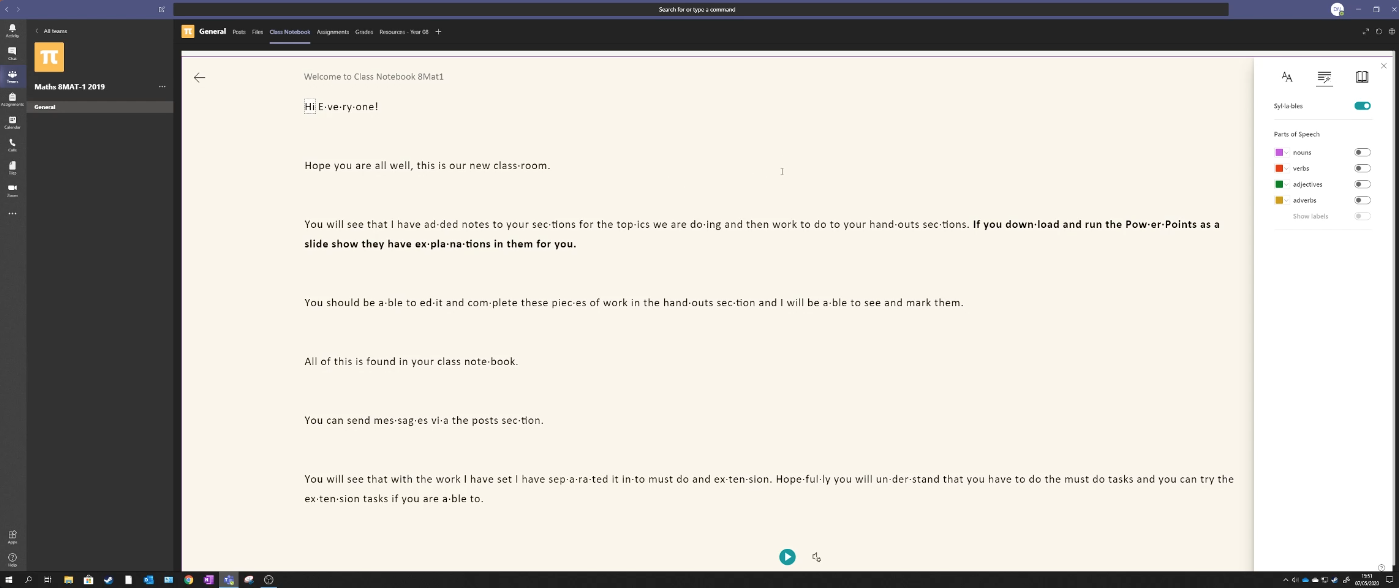SEN support during school closure
Home schooling has been a challenge for all of us during the unprecedented time of the pandemic and even more so for those with Special Educational Needs.
We are still available to support students as best we can during any periods of school closure, whether caused by the pandemic or for other reasons. If you need to contact us about SEN you can email our SENCo, Mrs Beresford or the SEN team.
If you have any difficulties with work set, please contact teachers directly. We are here to support everyone, including when it all just becomes too much, so please communicate with us and we will do our best to help.
Below is some video advice on how to use immersive reader in TEAMS to help with reading/literacy and some links to avenues of support.
TEAMS: Immersive Reader

10 top tips for parents for SEN remote learning
- Routine is important - set up a timetable for learning. You can copy the times of the school day if you wish but this may be difficult for children with SEN to mirror at home. We recommend 40 minute learning sessions with a 20 minute break between each one. Aim for at least 3 sessions a day but use your discretion, reduce them if you need to and be flexible if it is getting stressful.
- Allow extra processing/thinking time when asking questions - count to 5 slowly in your head once you have asked a question before you say anything else or offer prompts.
- When giving instructions give one instruction at a time. If you need to give more than one instruction, then write them down on a sticky note (for example).
- When you have given an instruction ask them to explain back to you so you can check their understanding. Often when you ask a child if they understand, they will say yes when they do not.
- When helping with reading and spelling, use a phonics based approach. Help with this can be found here: Oxford Owl parent guide to reading with phonics
- Use assistive technology such as the immersive reader or word processing software with a spellcheck.
- Use concrete examples and visuals to support learning. Generate ideas using a mind map.
- Work in a quiet distraction free environment if you can. Sometimes sitting next to a window will cause too many distractions. Headphones with music can be used to help focus if the environment has sound distractions. Make sure they are working somewhere where you can monitor and prompt them.
- Support them with planning work by helping to set achievable targets for completing work.
- Reward effort and perseverance.
Oak National Academy Online
Oak National Academy released some specialist online lessons which can be found here. These may be suitable to support some students with topics such as Independent Living but please ensure that if you choose to use this material you look through it yourself to assess its suitability.
Dyslexia
Advice for parents from the British Dyslexia Association can be found here.
Lexonik have made some of their excellent home support / intervention materials available for free, which can be found here.
ADHD
Advice for parents from the ADHD Foundation can be found here.
Autism
Advice for parents from the National Autistic Society can be found here.
SENDIASS
Information on Dorset Special Educational Needs, Information Advice and Support Service can be found here.